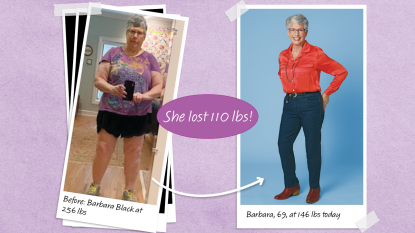Check Your Eyes for Early Signs of Heart Disease, Diabetes, and Other Health Issues

Paying attention to our eye health is essential as we age, but it isn’t just about keeping our vision sharp. Our eyes can also give us important signs about what’s going on with the rest of our body.
We all know eyes have been called the windows to the soul, but according to a recent study, they’re really the “windows to your health” — and they are especially great for detecting any early signs or underlying issues with heart disease.
How Your Eyes Can Show Signs of Heart Disease
One of the reasons doctors examine our eyes during a regular check-up is that they can see brain tissue through the retina, plus various red blood cells and vessels. Recently, a study published in EClinical Medicine found that spotting retinal ischemic perivascular lesions (RIPL) within eyes is an indicator of heart disease in patients.
Researchers concluded that certain factors, such as decreased blood flow or increased blood pressure, will trigger visible damage to the blood vessels in your eyes — an early indication of heart disease. Symptoms of RIPL also include sudden and painless vision loss along with losing focus in one or both of your eyes.
This doesn’t only apply to heart disease, though. Your eyes can give a much deeper look into other areas of the body with similarly clear signs that something’s gone wrong.
The video below explains how diabetes, hypertension, and nutritional deficits are also among the range of “systemic health issues” that can be identified by looking at your eyes.
Ways to Lower Your Risk of Heart Troubles
If you notice something potentially troubling about your eyes, such as any of form vision loss, redness, irritation, or problems with the blood vessels, you should probably consult your doctor. In the meantime, there are easy ways to lower your risk of heart disease to keep everything healthy and clear.
Moderate exercises, such as brisk walking, dancing, and even gardening, are the best for keeping your heart rate steady. These are fun ways to stay active and lead a healthy lifestyle without feeling burned out after every workout.
Also, lowering your heart disease risk doesn’t mean abandoning delicious seasonings with whatever you eat or cook. (No one wants to eat bland food!) Although you might have to ditch super salty snacks, adding herbs and spices like turmeric, cinnamon, and garlic to your food has been shown to cut triglyceride levels (fat stored in your blood) by 30 percent. These flavor enhancers help with the absorption of dietary fat — which is one of the building blocks for triglycerides and, in high levels, can increase your risk of heart disease. So don’t be afraid to spice it up when it comes to your daily diet!
And, of course, pay close attention to what your eyes look like on a daily basis to keep in tune with your health. Feel free to take more time to look at yourself in the mirror — your heart and overall health will thank you.













